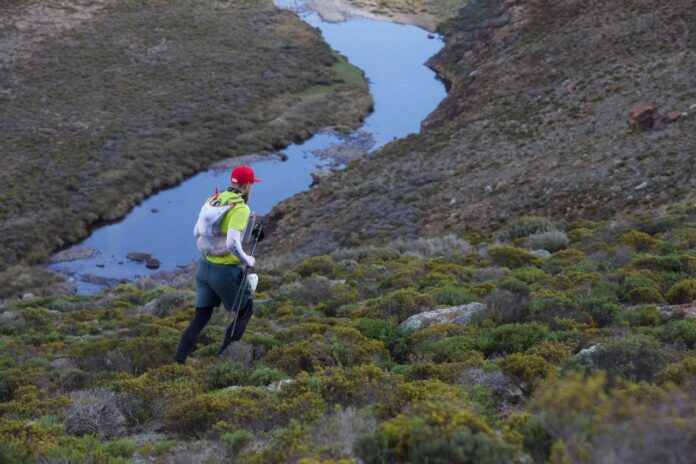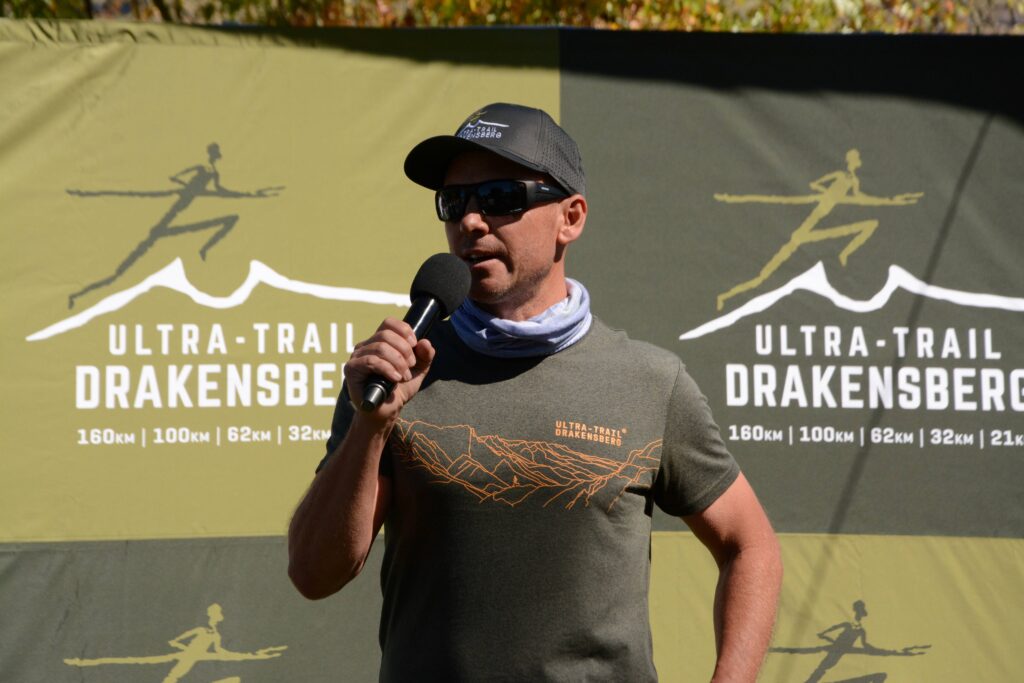
Early this century, a farmer in Spain’s Basque Country in the mountainous north decided to offer a small prize to the first runner to complete a mountain circuit from his home village of Zegama. The low-profile contest proved popular and the farmer doubled the number of entrants the following year. The initiative grew rapidly and became known as simply ‘Zegama’, a name synonymous with the world’s most competitive and best-loved trail race.
Several years ago a farmer in the Underberg region of the Drakensberg in South Africa had a similar idea and the first ‘Ultra-trail Drakensberg’ (UTD) was held in April 2017. While not yet threatening the status of Zegama, the UTD, which hosted its fourth edition last weekend (following a COVID-enforced absence in 2020), has quickly become one of the continent’s most sought-after trail experiences, with every possibility of attracting the world’s best trailers in the years to come.
With athletes of the calibre of Ryan Sandes, Ann Ashworth, Rory Scheffer, Nkosikhona Mhlakwana, Prodigal Khumalo and Bianca Tarboton blitzing to the top of the podium in their respective trail races which made up part of last weekend’s UTD, that Underberg farmer, Spurgeon Flemington, can look back with pride on what he, his family and his small team have achieved in just a few years.
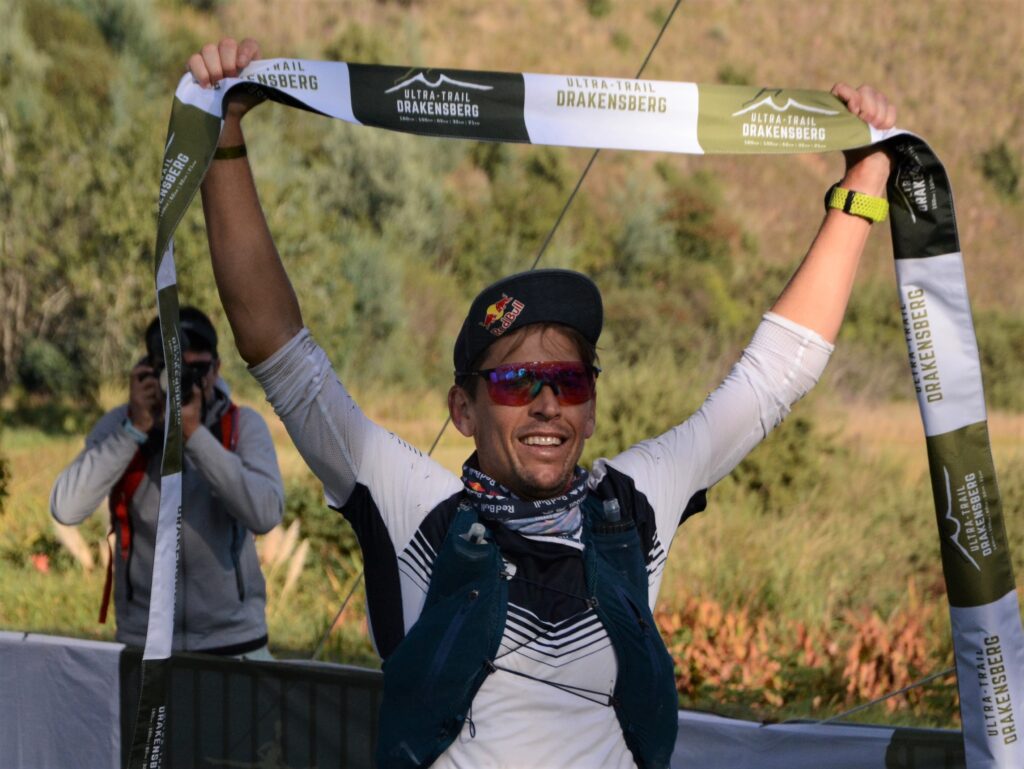
“Having spent a lot of time running on the hiking trails in the Southern Drakensberg, it had always been in the back of my mind to start a trail event of some sort in the mountains,” explained Flemington. “Once I started to think about it seriously, the enormous potential for a major Trail Event/Festival in the Giant’s Cup region became clear.
“This idea eventually became UTD 2017. Then in 2018 I was able to throw Lesotho into the mix and the 100 miler was added to the bouquet which gave UTD the final string to its bow.”
The UTD has gone from strength to strength over the past half-decade, but a family surprise handed Flemington moments of panic in the build-up to the inaugural event in 2017, when his wife Kat announced that she was pregnant and expecting their “laat lammetjie” just a week before race date!
“There was no way we could postpone the race,” Flemington explained. “The date had been set, we had received entries and after some earlier attempts, it was all systems go. My daughter Wren was born in the final lead-up to race day but somehow we pulled together a successful first event, which has grown each year into something we are all proud of.”
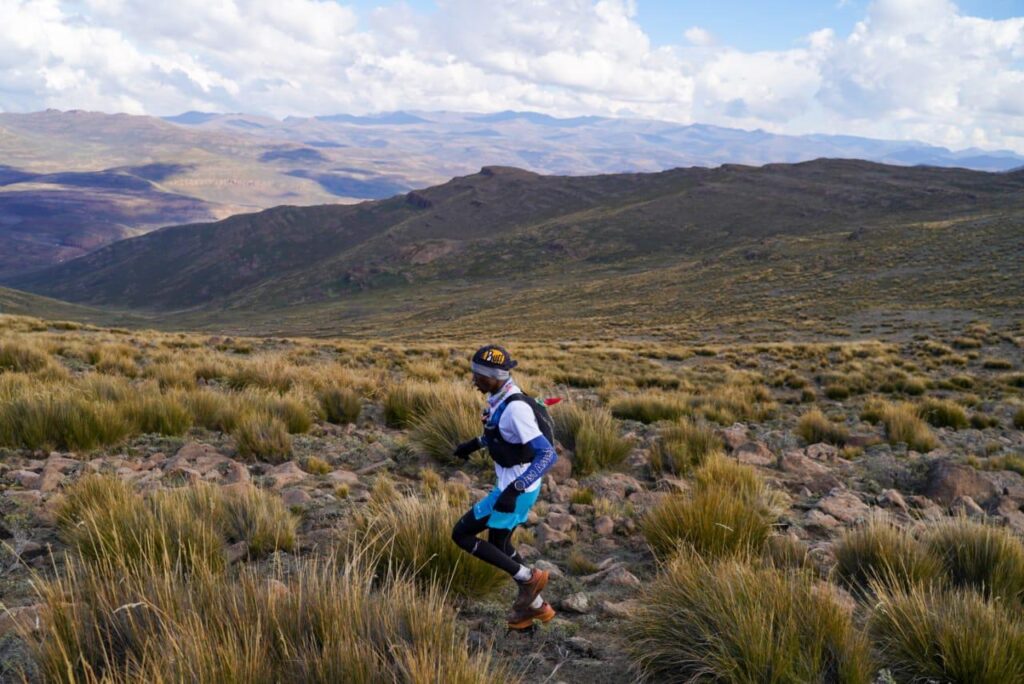
And pride is indeed justified. Held in challenging COVID-related circumstances, everything about the five races – 21km, 32km, 62km, 100km and 164km (100 miler) – went off like clockwork this year. Blessed with perfect weather conditions after an electric storm of Drakensberg proportions welcomed the arrival of the athletes, the revised route strategy proved an outstanding success.
“We made two major changes in the race routes,” Flemington explained. “Previously we had the races finishing at Bushman’s Nek, away from our Premier Sani Pass Hotel race headquarters. That presented logistical challenges for the runners and their supporters, many of whom were based at the Sani Hotel. We changed that around this year, so all races ended at headquarters.
“Secondly, we moved away from our earlier idea where we staged all the races in the mountains on technical singletrack. While that may be appeal to serious mountain runners, the routes were inaccessible to local communities and supporters. We decided to keep the best of the mountain trails but to include stretches along more runnable terrain, which would allow far greater spectator support and also offer less technically proficient runners a chance to compete.”
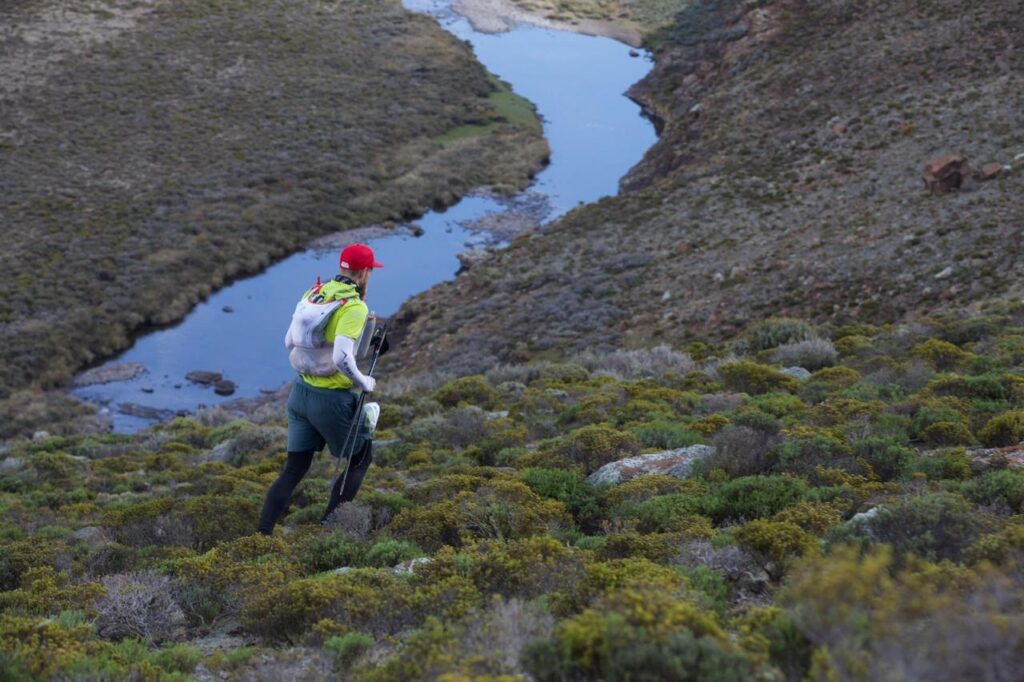
The latter strategy proved a revelation, with the location of some of the aid stations within easy reach of hotels or at restaurants and campsites, ensuring enthusiastic involvement from the wider farming communities, running clubs, tourists and hikers and campers, something which Flemington regards as an important element in the future of the event.
“I would like to place UTD on the world stage as a major destination for elite and amateur trail runners while simultaneously maintaining its strong local connection and staying true to its roots,” Flemington reflected. “South African trail runners will always remain the foundation of UTD, but I want to be able to provide them with a global event in their own back yard.”
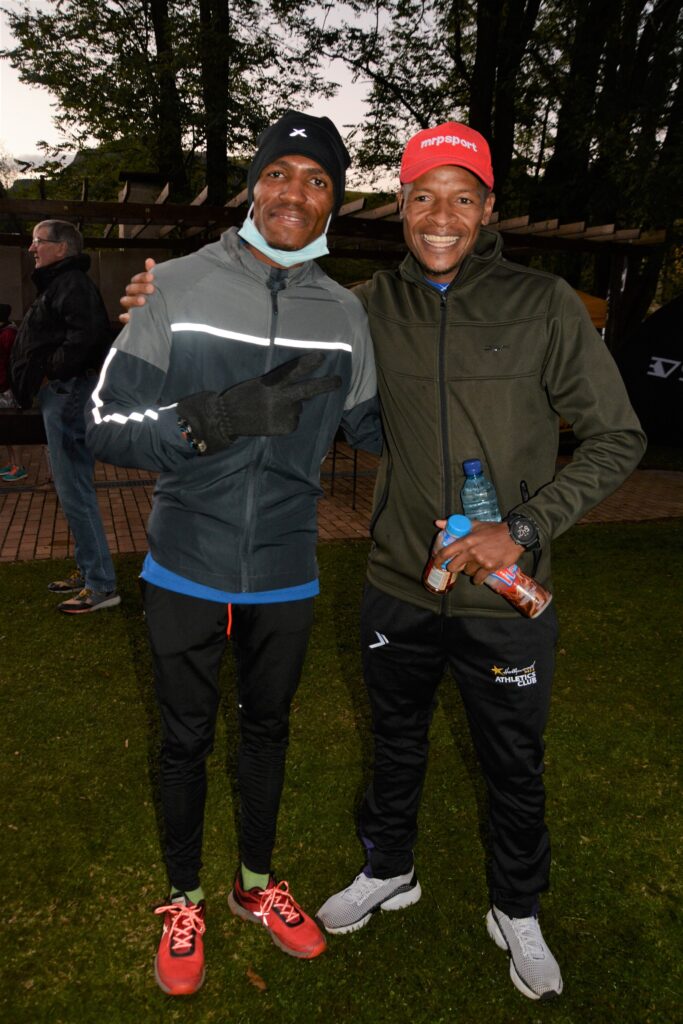
Global recognition remains a target for Flemington’s UTD and within five to ten years he would like to see UTD as ‘an undisputed fixture on the international circuit, whilst still remaining a bucket-list event for local runners’.
Moving away from the dangers of UTD being a ‘one-man show’ is high on Flemington’s hit list.
“Building a bigger team of accountable officials is vital, so responsibility for every detail of the event doesn’t rest with one person,” emphasises Flemington. “And we need to strive to achieve our ambitious goals without losing the personal touch and sense of community that are currently such a big part of UTD.”
“For me, the race’s legacy is one of the most important reasons staging it in the first place. We’ve worked closely with the conservation authorities, in particular Ezemvelo KZN Wildlife, the custodians of the Drakensberg, and we’ve contributed to some of their key conservation needs, including supporting vulture colony staff, providing emergency electrical repairs to an important mountain hut and brush-cutting hundreds of kilometres of hiking trails in Lesotho and South Africa, which provides benefits to hikers and trail runners for more than six months after UTD.”
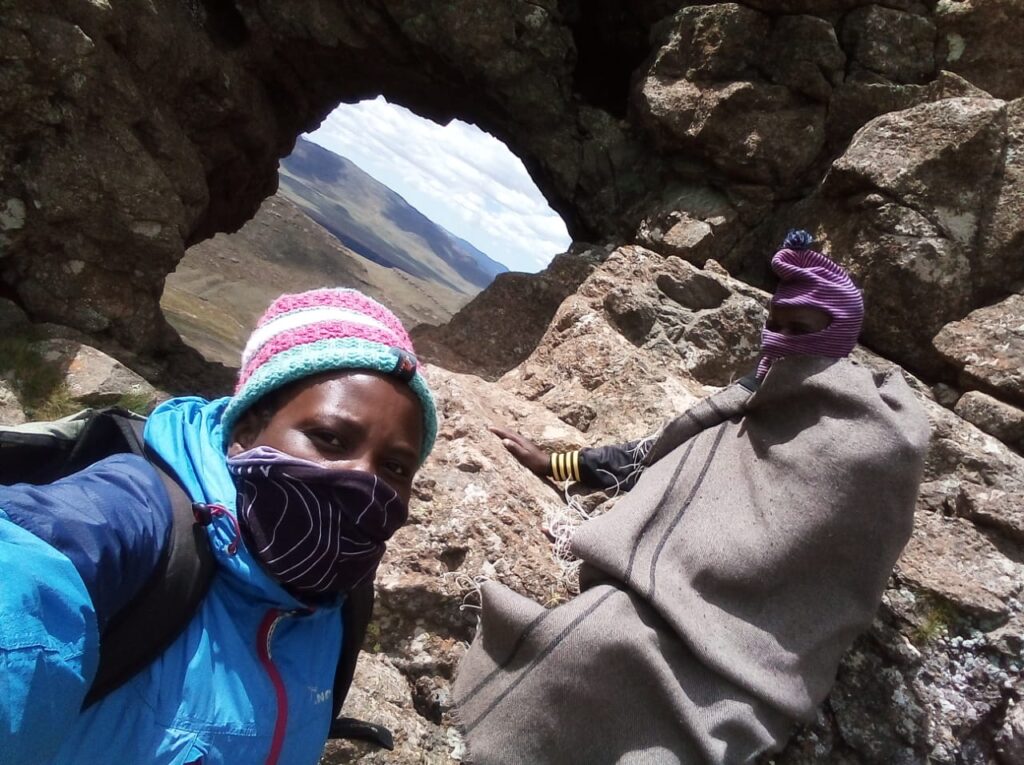
Another charity which benefits from the UTD is the Southern Lodestar Foundation, established by Andre Redlinger as a vehicle and platform ‘to connect people, nutrition and food within the African landscape’. The foundation’s goal is to ensure knowledge and nutritious foods are more accessible to all, for the growing and flourishing minds and bodies of all people.
“We’ve been feeding kids in local schools for two years now, in support of Lodestar,” explained Flemington. “And the success of this year’s event will ensure that this important work continues.”
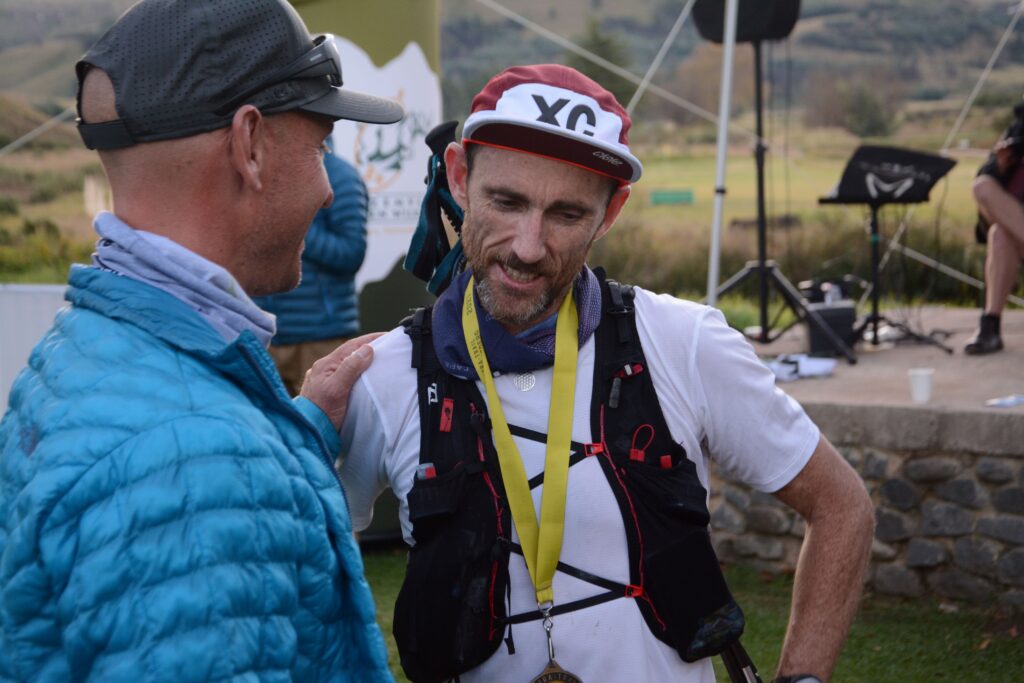
But for the moment Flemington can allow himself some weeks to enjoy the success of what he has achieved before building towards next year. And he has plenty to savour. “The levels of emotion and joy in the runners’ faces wherever I saw them out on course and at the finish are always special for me,” admitted Flemington.
“Then the success of having our Race Hub and finish line for all races at our primary base at Premier Sani Pass Hotel was particularly gratifying. And of course, I’ll dine out on having Ryan Sandes win his first ever 100 miler on African soil!”
Story by Stephen Granger
©SPNAfrica News
www.spnafricanews.com
